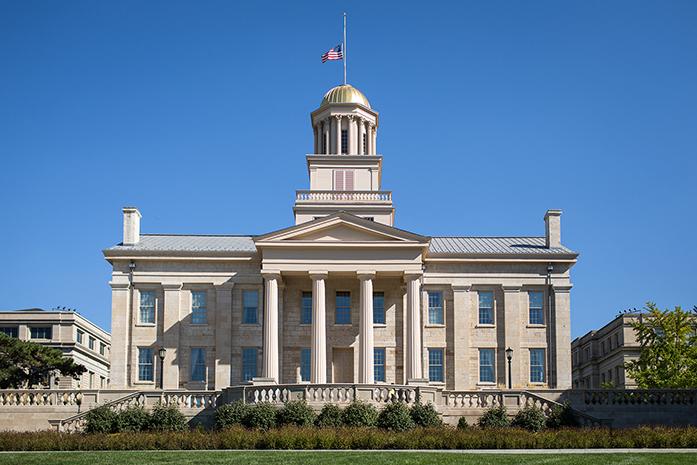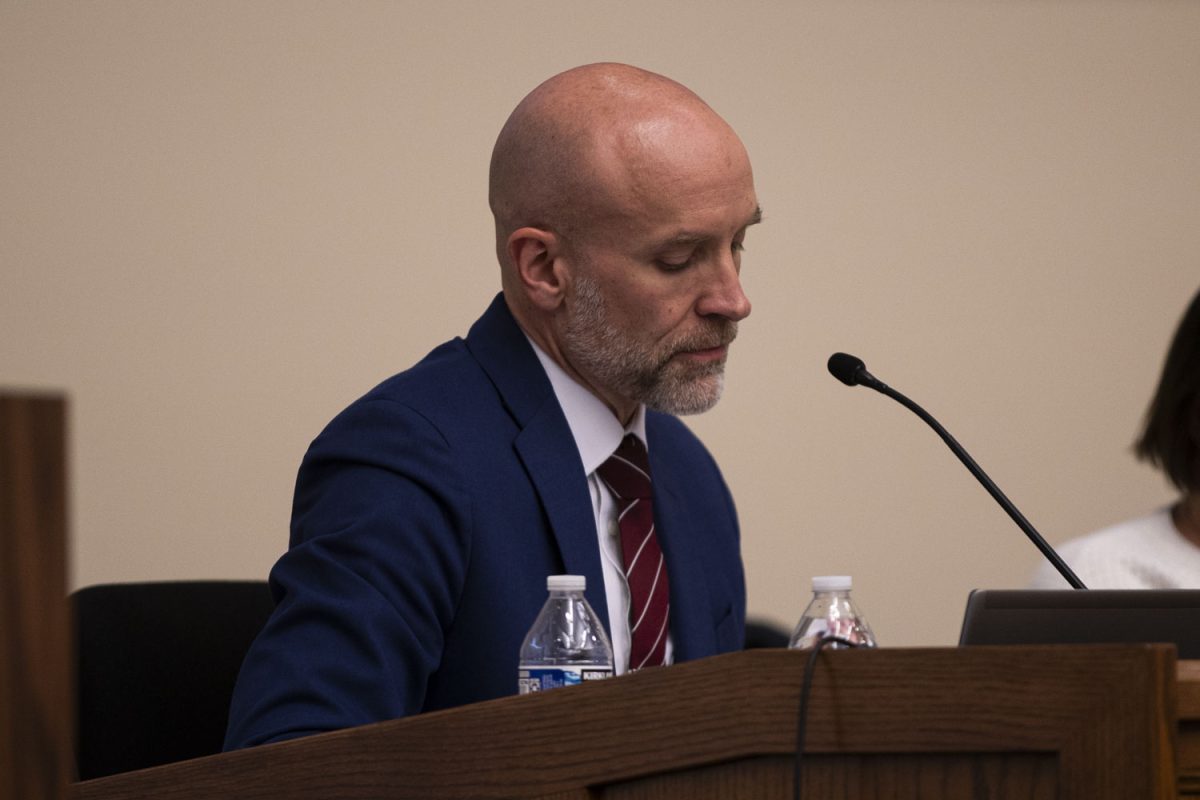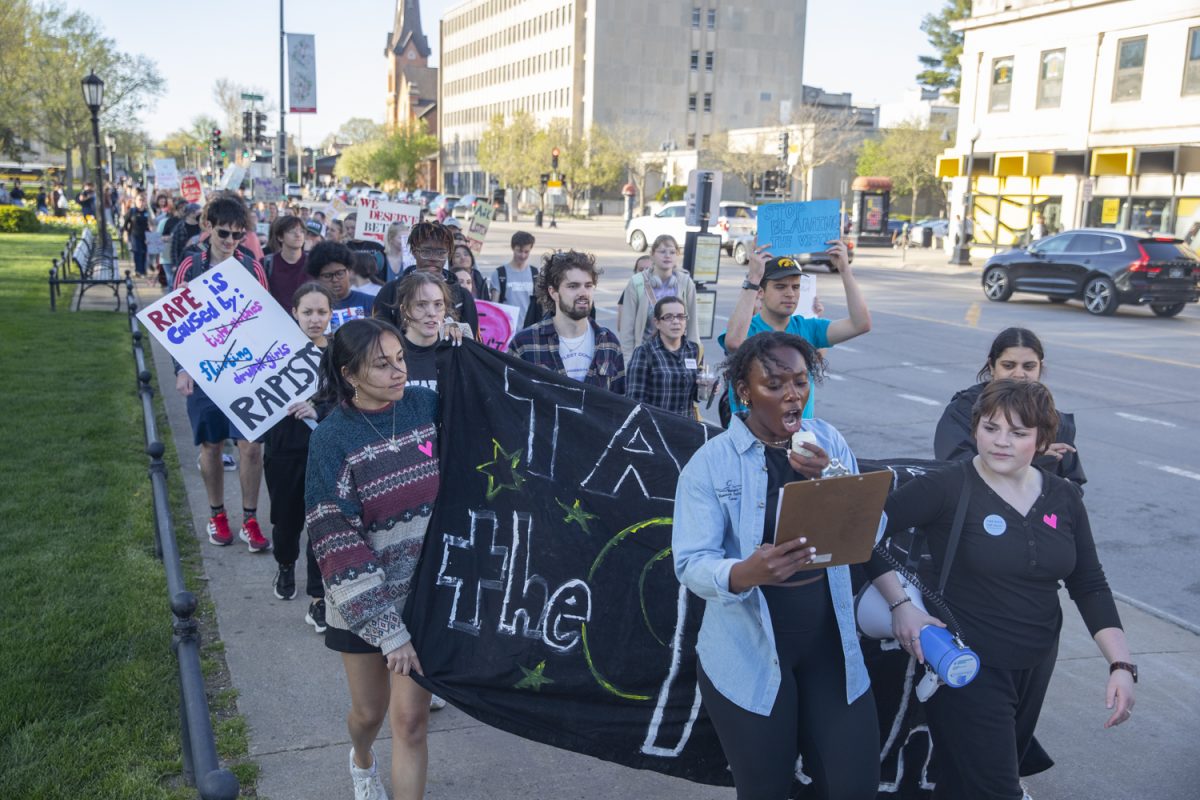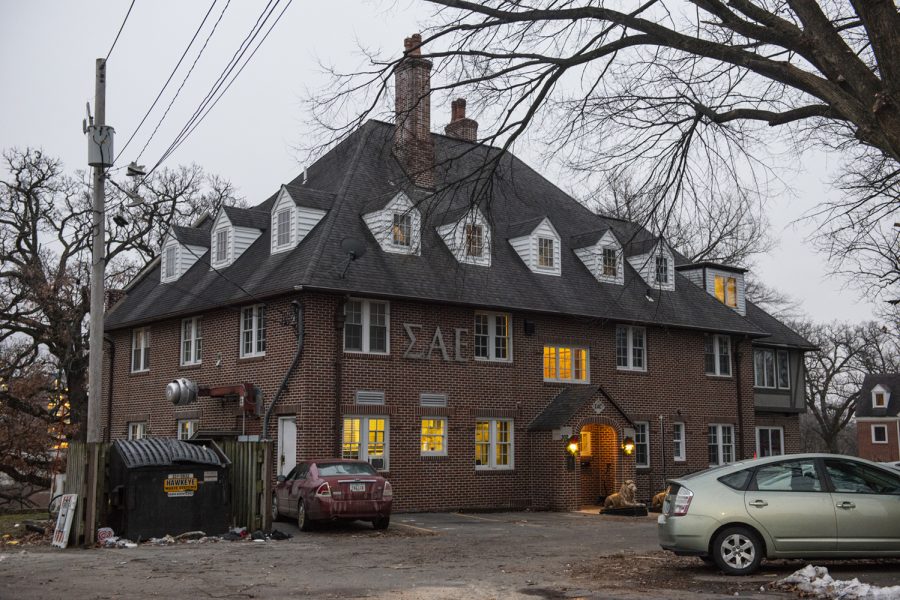By DI STAFF
Some University of Iowa students are striving to apply their studies to help solve social issues facing the community.
The new Engaged Social Innovation major gives UI Honors students an opportunity to choose a project they are passionate about. The projects center on societal problems, and the students in the major find ways to solve them. The nine students who elected to pioneer the three-year program recently presented their output.
David Gould, a UI adjunct lecturer involved with the program who was one of the founders of the major, helps to guide the students in their projects.
“I’ve been interested in this a long time — how does the city become a classroom? We begin to take the things that we’re learning sitting at desks and looking at PowerPoints in lectures,” Gould said. “Why don’t we take that and go do something with it?”
On Dec. 11, the students presented their findings after the first semester of exploring their projects. Next semester, the students will continue expanding and developing their projects.
The Daily Iowan is profiling the students and their projects.
Christina Sullivan
Christina Sullivan worked at City High’s Iowa Jobs for America’s Graduates program during the fall semester.
The program is a dropout-prevention initiative and optional elective for high-school students that has been available at City High for the last thee years. The primary goal of the program is to teach necessary life skills in order to create successful adults.
Sullivan, a City High graduate, said she worked with 11th- and 12th-graders for her project.
“I … found that the extrinsic motivation strategies teachers were using to get them to do better were not promoting sustainable skills and would not lead to long-term success,” she said.
Sullivan said the two major factors she discovered were inhibiting intrinsic motivation were the biological consequences of minimal sleep and stress and individual life tactics that were no longer aiding them.
Although Sullivan is not planning on continuing to work in the the program’s classroom next semester, she said it was helpful experience due to her desire to get a master’s in social work. She also plans on continued contact with the program’s instructors.
Sullivan, who is also a camp counselor and dance class instructor, called the program “my first big lesson in cultural competency,” because 90 percent of the students in the program are considered an ethnic minority.
However, Sullivan said her favorite part of the project was being able to work one-on-one with students and building their trust.
“Some of the things they shared were probably pretty difficult to say aloud, and I commend their courage and appreciate their openness,” she said. “One of the students even mentioned my name in a rap he wrote, which was definitely one of the highlights of my semester.”
— by Cindy Garcia
Gina Chieffo
Gina Chieffo has always been interested in social determinants, which she describes as how people’s initial wealth affects their long-term well-being.
Matched with a community project and a county in need of food security, the UI student began working to find where to make improvements to local food banks.
“Food insecurity affects a wide range of people,” she said. “It’s a matter of finding [food-insecure] people and being able to connect with them better.”
Chieffo teamed up with the Hunger Task Force at the Johnson County Food Bank and classes at the UI College of Public Health to chip away at the hunger in the city.
As a means to make improvements, she looked to find flaws in food delivery. Chieffo said there is a range of reasons eligible people would choose to not take offered food, including transportation and having young children.
Chieffo said she enjoyed working with the public-health school and hopes to continue community outreach to make a difference in local hunger. She also hopes to make food access a more realistic process for the many who need it.
“You really need to get the community on your side if you want to make a change,” she said.
— by Tom Ackerman







